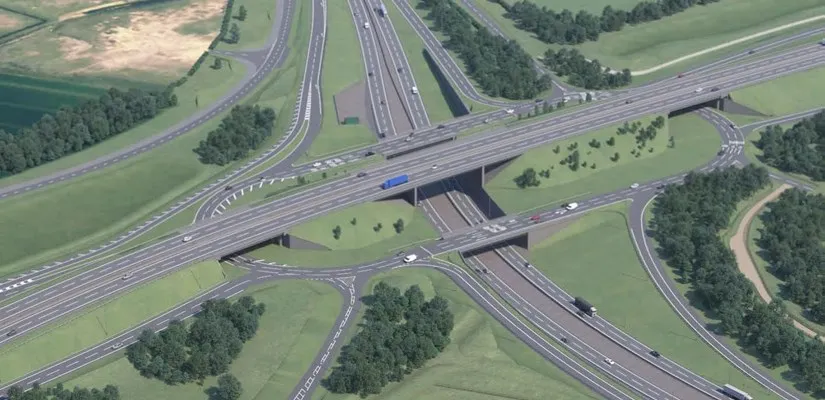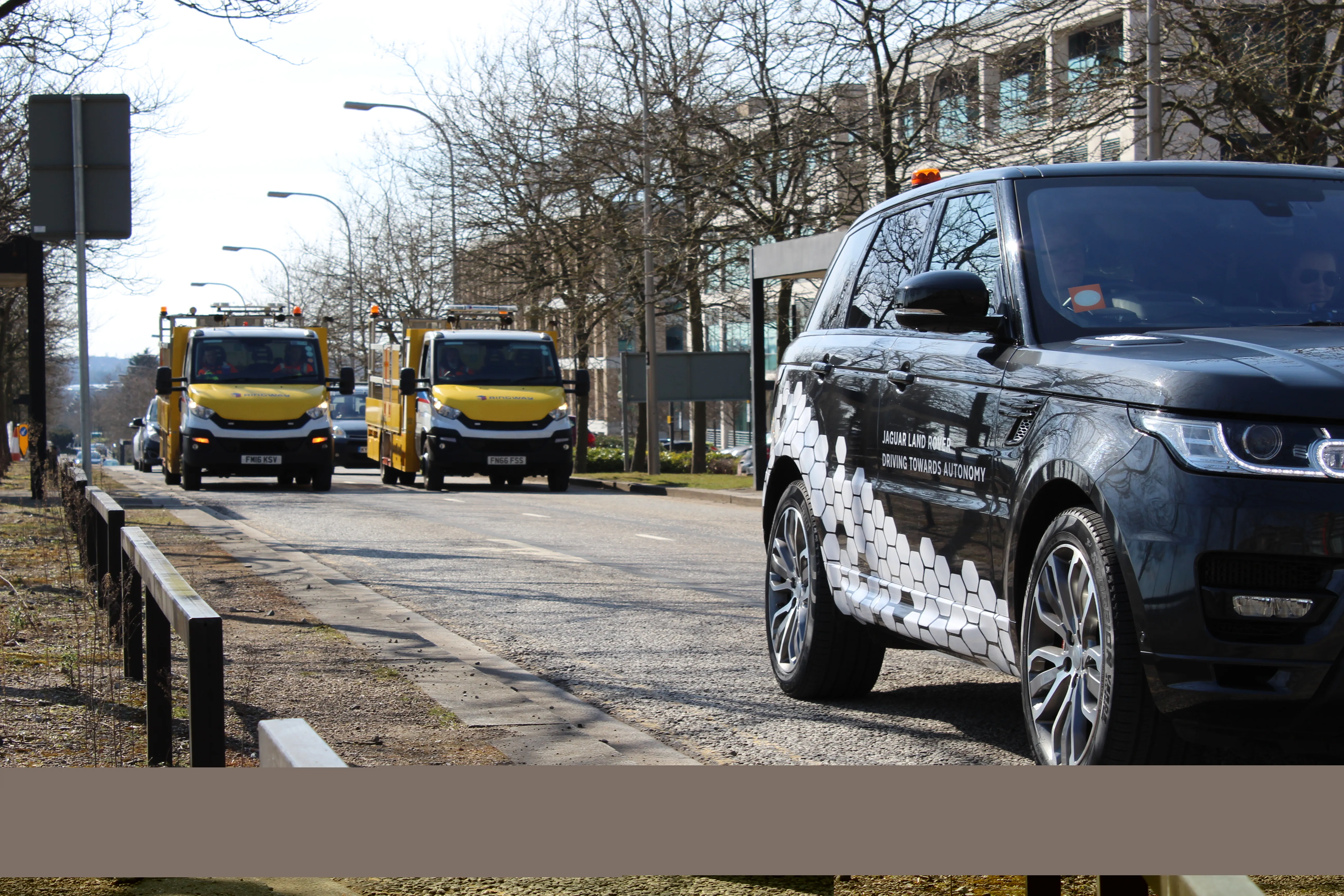
Skanska has secured more funding and will start work on England’s delayed A428 Black Cat highway improvement by the end of the year.
The A428 upgrade work was awarded in early 2021 to create a 16km dual carriageway to improve journeys between Milton Keynes, Bedford and Cambridge, north of London. But a legal challenge by the pressure group Transport Action Network has been delaying work and which has resulted in costs increasing from the original €581 million to €750 million.
Transport Action Network accuses the UK government of having a default solution to traffic congestion that is simply to dual highways, regardless of the increased CO₂ and at the expense of investing in more sustainable public transport such as cycling routes.
Skanska said it has secured nearly €27 million more in funding and the project’s client, National Highways, says work on site can start by the end of this year for the scheme is set to open by 2027. Skanska, working in close collaboration with design partner Mott MacDonald, is responsible for the design and build of the scheme and involve upgrading the route running from the Black Cat roundabout near St Neots to Caxton Gibbet.
A three-tier junction at the Black Cat Roundabout will be among the junction improvements. It will also create better routes for walkers, cyclists and horse riders and deliver better connections to St Neots and its train station. The route is the only remaining stretch of single carriageway between the M1 near Milton Keynes and Cambridge.
Around 25,000 vehicles travel on the A428 between Cambridge Road and Caxton Gibbet every day. But population growth and commercial investments in the area means the volume could reach around 33,000 vehicles by 2040.
Meanwhile, the UK government has allocated €825.3 million for road repairs in south-east England with each local highway authority being given €26.8 million this financial year and a similar amount will be handed over in the 2024/25 financial year. The remaining funding will be provided until 2034. Mark Harper, UK transport secretary, said the funding is part of a national plan to resurface more than 5,000 roads in the next 11 years.







